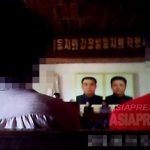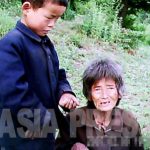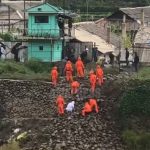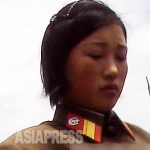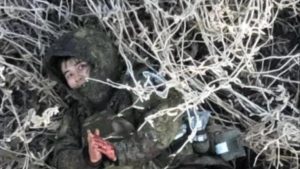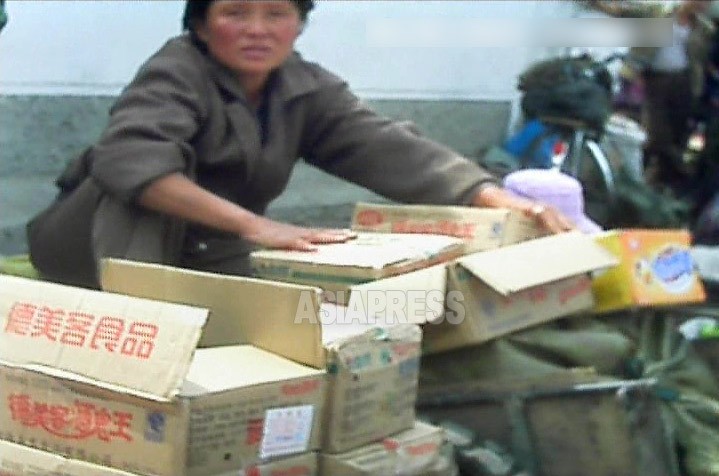
<Inside N. Korea> Implementation of the large-scale restructuring of trading companies(1) Called “anti-socialist hotbeds,” government forces ‘bases’ of trading companies to close down and consolidate
In North Korea, being labeled as someone engaging in “anti-socialist behavior” is an invitation to criticism and punishment. Now, the country’s trading companies are facing a storm of criticism. They are being accused of controlling the distribution of goods and taking advantage and causing harm to the people. In the first installment of this series, ASIAPRESS reported on the circumstances leading up to the massive restructuring and how trading companies in North Hamgyong Province are dealing with the repercussions. The second installment will explore the situation in Yanggang Province. (ISHIMARU Jiro / KANG Ji-won)
◆ Trading companies are “engaging in anti-socialism”
Trading companies in Yanggang Province have also been hit by the crackdown. Subsidiary organizations have been merged and personnel have been assigned to different factories by local government agencies. ASIAPRESS asked a woman in Hyesan who had sold Chinese-made clothing purchased from a trading company at a market about recent trends related to trading companies.
-- In North Hamgyong Province, the crackdown on trading companies is intensifying. What about Yanggang Province?
In Yanggang Province, the government has also been inspecting and investigating trading companies. Someone I know told me that one company, even though it is under the secret police, is subjected to quarterly inspections by the provincial trade bureau and accounting checks by prosecutors.
-- Obviously, there must have been a strong directive from Pyongyang. Do you know what it was?
In December of last year, the central party (of the Workers' Party) delivered a stern criticism that the trading company was engaged in “anti-socialism.” In short, officials were accused of “turning the trading company into private property, enjoying the same luxuries as the exploiting class in the past, having nice cars, admitting young women into the workplace, and giving them food rations and high wages, which is contrary to the principle of the socialist supply system. They are giving the toiling workers a sense of deprivation.”
Gone are the days when you could start a company in China overnight just because you had a trading partner or relative in China. Trading companies are required to disclose all financial flows to the authorities and report all exports and sales to the provincial trade bureau. All sales and distribution of goods in the country must be authorized by the authorities.
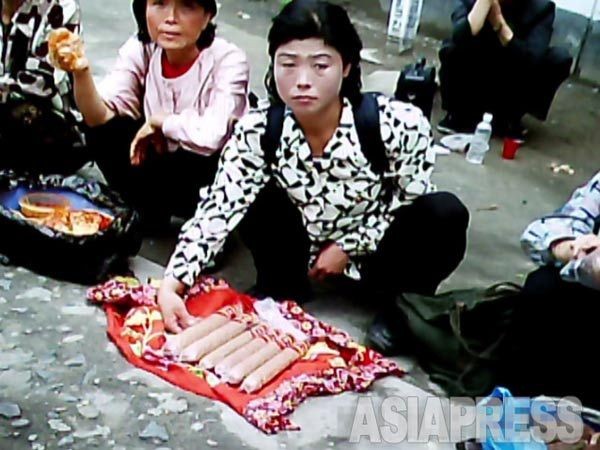
◆ Kim Jong-un and leadership are directing the process
-- This crackdown must be occurring on the orders and instructions of Kim Jong-un.
The central government’s orders call for promotion of “state-led trade” in earnest and at the same time that we should improve the status of the country by observing the principle of independent trade based on the unified trade policy of the Ministry of External Economic Relations.
※ State-led trade: A trade system in which the state takes the lead in managing the items and amounts imported and exported. The system began around 2019. Before that, trading companies had a degree of discretion in their economic activities.
◆ Impact on ordinary people... Import businesses have been nearly wiped out
-- How has the stricter control over trading companies affected local people’s businesses?
I have been selling Chinese-made clothing in a market in Hyesan for a long time. I used to go to a trading company to buy imported garments and sell them in the market or wholesale them to local merchants. I used to make a net profit of about 3,000 yuan (about 550,000 U.S. dollars) per month.
It's not the same world now. During COVID, there were no Chinese products coming in at all, but recently there has been a small amount of approved Chinese-made clothing coming in. But trading companies are not allowed to sell it wholesale to individuals. It all has to be wholesaled to state-owned stores and consignment shops. That’s how import payments have to be dealt with, according to the government.
※ Consignment shops: Many government-run shops that lack funds have turned to a system where goods are entrusted to them and then settled when the goods are sold.
Thus, the days of "donju" (wealthy entrepreneurs) exclusively receiving and distributing goods from trading companies are over. Everything imported from China goes into the state-owned commercial network. The vendors in the market asked the state-owned stores to sell some of the goods to them, and they sold them in the market, but most of them stopped doing business in the market because they could only make a small profit. I quit, too.
◆ Large-scale restructuring began in late 2023
-- When did the large-scale restructuring of trading companies begin?
It was only last year that Hyesan started to eliminate or reorganize trading companies. By the end of last year, basically all of the "bases" had been closed. Only companies that can export to China through 'state trade' are left, and the 'bases' that used to collect their own domestic resources and fulfill the plan (state quota) through export are all gone.
*The 'base' is the bottom level of North Korea's foreign currency earning operations and is the center of production and concentration of exports and 'intermediate' goods. Many were created under the umbrella of powerful government organizations or trading companies, giving them privileged access to distribution networks.
--What happened to the employees of the 'bases'?
Someone I know who was managing goods for export at a 'base' was reassigned as a laborer in a beer factory after the company was dissolved. There are many such cases.
--Who will be in charge of acquiring “resources” in the future?
(The authorities) say that efforts to acquire resources (collecting domestic resources and exporting them), which used to be handled by the "bases," will be handled by state-owned stores or state-owned commercial management centers. But I doubt it will work. (To do this), you need to identify local people who will come to collect and sell the resources, and you need to prepare vehicles and fuel. People in the state-owned distribution organizations will not know any of that. I don't think it will work.
* Resources: Most of the foreign currency-earning goods exported to China are primary products such as herbal medicines, wild plants, and seafood. These are called "resources" because they are gathered from the mountains or sea by ordinary people.
The massive restructuring of trading companies that Kim Jong-un's regime began late last year has effectively taken away authority from many powerful institutions. The whole campaign has been driven by strong political will rather than economic motives as part of the regime’s "anti-market" policy, which began around 2019.
ASIAPRESS communicates with reporting partners through Chinese cell phones smuggled into North Korea.
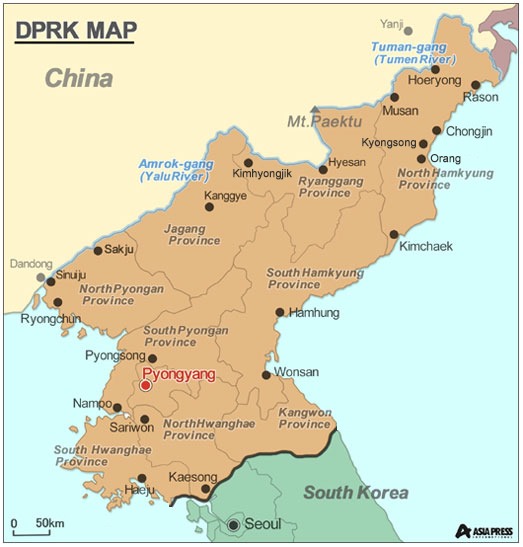
<Inside N. Korea> Implementation of the large-scale restructuring of trading companies(1) Called “anti-socialist hotbeds,” government forces ‘bases’ of trading companies to close down and consolidate
- <Inside N. Korea> Implementation of the large-scale restructuring of trading companies (1) Called “anti-socialist hotbeds,” government forces ‘bases’ of trading companies to close down and consolidate
- <Inside N. Korea> Regime tightens reigns on young people...A public trial and ideological struggle in February led to intensive attacks and forced participation in firing squads
- <Inside N. Korea> Workers frustrated by worsening workplace rations…Some call out company officials in rare rebuke
- <Inside N. Korea> Surveillance cameras are popping up in markets, restaurants, roadsides... "They are used to identify those responsible for increased crime and disturbances"
- <Inside N. Korea> Fights and even robberies: The authorities troubled by groups of ex-soldiers…Soldiers are placed in construction teams to reintegrate into society… However, men who serve for 8 years miss out on their youth
![[Video Report] There is no water! N.Korean People's 'Water War' because of water shortage](https://www.asiapress.org/rimjin-gang/wp-content/uploads/2018/07/20130625_water-150x150.jpg)
